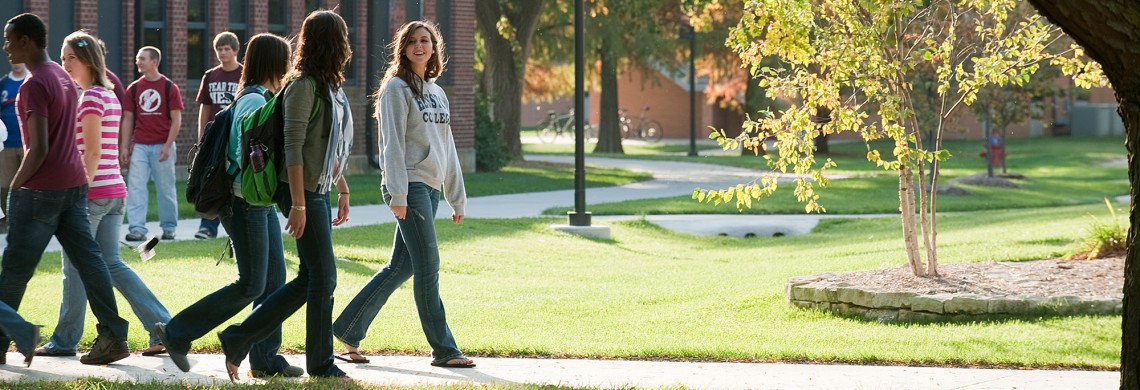OK, you are about to find out that this book is unconventional. It is not like any other book you have ever read, as what I do in class is not what any other professor does, according to my students.
So rather than some short quotes by a lot of other people, I just have a few stories from some of my students. I think they speak for themselves and hopefully will assist you in understanding why the book is SO very important to your future!
It’s professors like David Leis who can take a class you debate about going to (even if you do have a lot of catching up to do on the Internet), to a class you look forward to going to. Every class began with a quote, something inspirational or thought provoking, that talked of success, teamwork, happiness, and various aspects of life. The class wasn’t about the textbook; it was about something more tangible: thoughts, ideas, and growth. He would ignite the dialogue but we were directing the discussion. It was on us to come to our own conclusions about the topic. It’s one thing to have a professor stand in front of the class and tell you want he or she wants you to think, but it’s another when you find it on your own. With these discussions you find meaning for yourself on how to live your life the way you need to. You define your life; you define your success.
Leaving each class I felt different, as if I had one more block to help me shape my future, my goals. You can’t let other people pave your road to success. You have to lay it out yourself, brick by brick.
—Taylor Ruckh, Senior
The most important lessons that Professor Leis taught me were not how to create an impeccable pivot table in Excel, although he also did that, but he taught me that my choices matter. He didn’t teach me this in a way that a lecturing parent tells their child the first day they get their driver’s permit, but every class he reiterated that my choices matter because I matter, and my generation matters.
Below I will try to explain the significance of the semester spent in Professor Leis’ class.
I showed up to Professor Leis’ class dreading the Information Technology class that was required for graduation. As a college student in New York City, I was already feeling the pressures of the ambitious city. I showed up to class with my yoga mat from the 6:00 a.m. morning class I had taken, wearing heels from the internship I came from, and carrying another bag for work clothes because I was headed straight to my part-time restaurant job after class. Now that I’ve described a picture of how overloaded I was physically, imagine all of those bags on a petite frame, times ten, and that’s how emotionally overloaded I felt on that snowy afternoon.
As I headed into the classroom I was in the midst of holding back tears. I plopped myself down in the second row and watched as professor Leis greeted every student with a quirky smile. Professor Leis took an extra look at me as I sat there and rather than asking if I were OK, he handed me a paper with an anonymous quote. Once the remaining students took their seats, he asked me to read the quote in front of the entire class. I thought to myself, “This guy is such a jerk,” but bitterly obliged to do so. He stopped me multiple times and asked me to reread several of the lines. I had to bite my innately quick tongue before brashly replying, “Did I stutter or are you deaf?” Slowly I began to understand that neither were the answer to my pointed question, but he was waiting for me to actually read the quote. My urge to cry my eyes out and give up on my dreams after another terrible day at my seemingly terrible internship slowly dissipated and I started to reread the lines to the class without being asked to do so.
As the weeks continued, myself and other students started arriving to class five minutes early and by the end of the semester most of the students were in their seats at least thirty minutes prior to lecture taking place. During these thirty minutes, Professor Leis would listen to us banter back and forth and vent about our jobs, internships, and excessive homework. Most of the time he would remain silent and look up a few times to smile at us from behind his computer, but would just let us say whatever we felt was necessary. One day a classmate asked, “Professor Leis, doesn’t that suck?” In that instance, Professor Leis didn’t smile, but he got up from behind his desk and pulled a chair up next to our chatting circle, and said, “No.” We all exchanged glances that, if translated into words, would have the significance of, “I thought this guy was supposed to be cool.” He sat calmly and explained how our choices mattered. Our choices during the thirty minutes prior to class to sit and complain mattered and our choices to do things that we weren’t passionate about mattered, and more importantly, our attitude about everything mattered. We had gotten Professor Leis’ first lecture on positive thinking. For the remainder of that class period we sat in unusual silence as we pondered what we had been told. For the remainder of the semester we continued to show up to class early, but rather than discussing how much our bosses sucked or how annoying professor so and so was, we talked about future job possibilities, how we didn’t like a lot things that had gone on at our internship, but we loved one thing. Slowly, our positive thinking became contagious.
Although, it’s a lifelong lesson, my classmates and I have slowly started to take this positive thinking outside of the classroom and apply it to our daily lives. Professor Leis has the uncanny ability to relate to college students on a personal level in professional manner.
—Rose Gamelsky, Junior
Professor Leis’ lectures truly opened my eyes to the world outside the classroom. I was inspired to do my best in class and in my daily activities in life. His mini lectures were a great way to start my day and motivate me to shoot for the stars. I would hang them on refrigerator each week and my roommates would be inspired as well. I am so happy to have taken his class.
—Kaitlyn Kuchler, Freshman
I took Professor Leis’ class in my first semester at Fashion Institute of Technology.
I came to the United States from St. Petersburg, Russia, and was always looking forward to an education at a school like FIT. But considering cultural and language differences, I wasn’t always sure that I could be a successful student.
When I finally started my classes, I tried my best to adapt to the American system of education, which is completely different from what I was used to in Russia. Professor Leis happened to be one of my teachers, and I consider myself very lucky! His classes were very interesting and I looked forward to them, especially because of the little inspiring talks he gave us each week! It was his intention to give us positive energy and meaningful guidance that we could use in life. He explained how important it is to be attentive to our thoughts and attitudes.
I was slightly older than other students in my class, and after having some experience in adapting by myself in a foreign country, I saw how important his message was. Looking outside of your comfort zone to find your way, without fear and doubts, is the best and only way that we all can use to transform dreams and goals into reality.
Professor Leis was talking straight to our inner “I am” and tried to awaken and encourage us to change what we surround ourselves with. I felt extremely inspired by Professor Leis’ talks and the way he tried to show us reality. I believed in myself even more and ended that semester with really great grades, which I was very proud of. Those grades and the level of confidence I gained from those talks helped me to realize that I can take more classes and add an internship.
We create our thoughts and attitudes, projecting them right into our lives, and the results are amazing. I’m very happy that there are people like Professor Leis, who try to remind us about it and help us to stand against the crowd and the culture of mediocrity.
—Natalia Belik, Sophmore
I’ve learned so much from you and I know I will take all the lessons with me for the rest of my life. It was always just what I needed to get me through the week. I’m so thankful for everything you did and taught me. You really inspired me to stop being reactive and just really think about what I say and do. You’re the best!
—Apryl C., Freshman
You made a huge impact on me and my experience in college. I have changed my approach to study and participation in campus activities. My grades are higher than I ever thought I could achieve. And two of the chapters in this book bring me to tears when I read them, they are so powerful.
—Marcel Floruss, Junior
The things Professor Leis taught me have had a huge impact on my life! Doing my best no matter who noticed or how I felt about my job. Doing the best job I can possibly do is good for me and that is enough! I was just a stocking clerk in a drug store, while I was in college. But I made such an impression on both the manager and one of the district managers from a supplier, that one day, the DM asked me if I would be interested in joining his company. Great salary, benefits, company car and cell! That only happened because of the lessons Professor Leis taught me.
—John C., Sophomore
God in His providence introduced me to Professor Leis at a really difficult time in my life. I was unemployed, discouraged, and in need of godly counsel. The first time I heard Professor Leis speak about life, I immediately noticed that his advice was based on the truth of the Bible (that was my interpretation since he never once mentioned God or anything religious), and as a result, it was very applicable to my circumstances.
His encouragement for us to be the best people that we could be for those around us was a blessing. Personally, he helped me to understand that by focusing on being that person, the person that God designed me to be, I could be and will be a hero (a refreshing and helpful presence) to those around me. Additionally, his advice was practical and well received by everyone in the class because of his relationship with the Lord and his love for people.
Professor Leis also showed me that part of being the best person we can be is recognizing what we do bring to the table and not undervaluing our own abilities. This advice proved invaluable because it helped me to successfully negotiate a contract with a major global luxury brand for much-needed work that came my way just a few short weeks after our class ended. I highly encourage you to read this book and to share it with your friends and family. From what I know about the author, I believe this book will inspire and motivate many people who are in the valley or going through setbacks. It will lead them to examine their lives and will help them on their journey to become who they were meant to be.
—Chemene W., Graduate Career Certificate Program
The things professor Leis taught me have had a huge impact on my life! I was a stocking clerk in a drugstore while I was in college. But I made such an impression on both the manager and one of the district managers from a supplier, that one day, the DM asked me if I would be interested in joining his company. Great salary, benefits, company car, and a cell! That only happened because of the lessons professor Leis taught me.
– John C., sophomore, New York
David Leis has written a valuable guide for college students to learn how to achieve more of their potential and if internalized over fourteen weeks, can change the course of a person’s life. David’s guide can benefit serious students of life at any age. Those who follow the clear path that David has laid out may very well realize that this will be one of the most important books they have ever read.
– Ed Gaffney, two-time All-American, soccer and baseball, Hofstra University
Foreword by Robert R. Neuman, PhD
During my twenty-five years as a dean in higher education, both advising and teaching students, I have learned a lot about what it takes to succeed. Success in college requires more than great high school grades and high standardized test scores.
The successful college students I’ve seen over the years have several things in common, one of which is a complete sense of self.
What does that mean? Do you have it, or not? If not, how do you get it?
The book you hold in your hands guides you in answering these questions. Succeed Wildly in College defines the self and explains how you can develop a self that will succeed in college as well as in life after you graduate.
A college professor himself, author David Leis draws on years of experience teaching and mentoring college students. Like me, he has discovered that to get the most out of a college education, students must be particularly aware of themselves every day. It’s a habit to be cultivated—students need to focus seriously and carefully on such self-evaluating questions as these:
- What kind of person am I?
- Do I know how to set personal goals that will produce the future I want?
- When I identify my goals, what do I do to accomplish them?
- Do I seriously try to become a better person each day?
- What does it mean to succeed?
David Leis helps you tackle these questions in a very methodical and practical way. As he says, “Self-discovery does not just happen.” Like all important things in your life, you have to work at it. In Succeed Wildly in College, you’ll learn how to start out on the right foot in your journey of self-discovery.
As you begin to learn about yourself, you’ll want to learn more each day. In the end, you’ll be able to say, “This is who I am. I know my place in life. I know how to set goals and meet them, and I’m confident I will achieve them with wild success.”
In short, the better you know yourself, the better student you’ll be. David Leis’ book will show you how to discover your potential, expand your intelligence about life, and enter your future with confidence and a great deal of self-satisfaction.
Robert R. Neuman
Academic Dean (retired)
Marquette University
Author of Are You Really Ready For College? A College Dean’s 12 Secrets of Success—What High School Students Don’t Know





